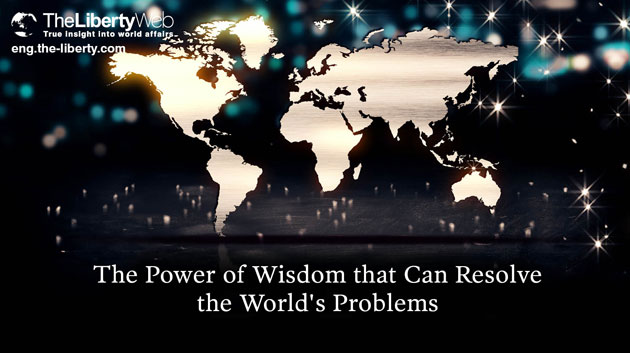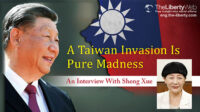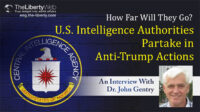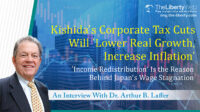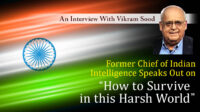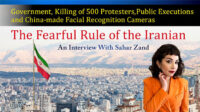The Power of Wisdom that Can Resolve the World’s Problems
Wisdom's Power Can Resolve a Variety of the World Problems
Wisdom’s Power Can Resolve a Variety of the World Problems
A Lecture on “The Laws of Wisdom”
Delivered at Tokyo Shoshinkan on January 11th, 2015
Master Ryuho Okawa publishes the ‘Law’ series every year, which creates the year’s trends for his organization, effectively influencing various areas of Happy Science’s activities. Master Okawa began 2015 with a lecture on the newest book in his series, “The Laws of Wisdom”.
On the Islamist Extremists’ Raid on “Charlie Hebdo”
Muslims connected to Al Qaeda started off this year with a terrorist attack. They forced their way into the headquarters of “Charlie Hebdo”, a French satirical, weekly newspaper, which had published a cartoon of Mohammed, and killed 12 people.
Master Okawa spoke of this incident in his lecture, stating that an issue with the concepts of ‘wisdom’ and ‘understanding’ was at the root of the problem, and that Happy Science has many teachings that could remedy religious conflicts. Indeed, if more people were to read Happy Science’s books, they would not initiate terrorist attacks, nor would the advocates of ‘freedom of expression’ misunderstand such incidences as consequences from clashes between ‘freedom and religion’.
Islam is originally a religion that loves peace; but there is a part of it that appears prejudiced. Yet, freedom of expression should not allow for unconditional exploitations, such as making fun of religious matters, which greatly upsets certain groups of people. In fact, ‘freedom of speech’ and ‘freedom of expression’ originate from the ‘freedom of religious belief’. In truth, people should realize that it’s important to hold their opinions with responsibility.
Religious ideologies overflow with this sort of wisdom, and Master Okawa explained the true value of it; through ‘knowing’, humans expand their freedoms and tolerance, and learn to accept other people who have different values.
The Trap that Awaits the Piketty Craze
In addition, Master Okawa raised his concern over increasing sentiments to reduce economic disparity. In Japan, French economist Thomas Piketty’s book “Capital in the Twenty-First Century” has become a sensation in the media. In that work, Piketty posited that the rate of return on capital is greater than the world’s overall economic growth, thus, capitalism is a system that enlarges the disparity between those who possess capital and those who don’t. He then proposed to introduce a worldwide tax on capital to solve this supposed problem.
Master Okawa, however, elucidated the error in Piketty’s theory. Master Okawa advanced in his lecture that the taking and giving away of the internal reserves of businesses might indeed reduce economic disparity, but on a global scale, this is bound to fail. He explained that capitalism’s advantage is that it creates the potential to undertake larger-scaled businesses through the concentration of capital.
Raising taxes and increasing the redistribution of capital will lead to a domination of a small group of influential people, which could send an entire country to ruin. In order to prevent that from occurring, it’s important to produce ‘thinking people’ who create added value.
This lecture not only covered steps to individual happiness, religious harmony, and national prosperity, but it also revealed Master Okawa’s intention in publishing “The Laws of Wisdom”.
The Strict and Broad-minded Outlook Required of Leaders
“How to Build Leadership Skills for Top Management Personnel”
January 3rd, 2015
Delivered at Happy Science’s Sacred House, Taigokan
In the beginning of 2015, Master Ryuho Okawa gave an introductory lecture on leadership skills, exploring the mindset of true leaders of nations and organizations.
Having the Resolution to Pave Your Own Way
Master Okawa first proposed that leaders must be conscious of the need to find their own paths based upon their own thinking and mental attitudes. He urged them not to rely on government subsidies, nor to count on changes in environment owing to economic policies, but rather to march forward regardless of circumstances.
Indeed, there are situations where the rise and fall of the national currency [Japanese yen] may result in profit, or where demand momentarily emerges due to the government’s investment in infrastructure. However, people in positions of responsible for the wellbeing of others, leaders, should not wait for moments when the tide runs in their favor; they should not tolerate such bad habits. No matter how favorable the circumstances might be, it’s important to stay on guard constantly and to note that despite being successful, any new move could lead to the next failure.
Master Okawa also advised never to forget to empathize with other people’s suffering, and to glance occasionally back at the younger versions of yourselves.
In this lecture, Master Okawa additionally offered advice on the following subjects: the balance between training workers and the costs, how to use workers to the utmost, the difficulties of producing results proportionate to investments, how to become a leader who can ‘keep his word’, and the skills required to communicate ideas that influence organizations. He covered a wide area, giving specific examples on how to build leadership skills.
How Much Should You Listen to Subordinates’ Opinions
This question can cause a lot of distress to people in leadership positions. If leaders assimilate too many of other people’s opinions, they will appear as having decision-making problems; conversely, if leaders do not listen to others at all, they will appear dictatorial.
Regarding this matter, Master Okawa explained that it’s important to listen to the opinions of others, but it’s equally important not to let them sway you. Thus, both skills are required, and it’s a crucial, albeit difficult, aspect of leadership.
In order to cultivate the ability, Master Okawa offered a tip: to act against the human instinct to avoid people with conflicting opinions and to listen to them, as did the great rulers and leaders from all of history. For more tips, we highly recommend watching the lecture.
Master Okawa emphasized the need for a correct mindset to incorporate other people’s opinions, stating that this mindset stems from modestly; from the attitude of reflecting on past failures and shortcomings and correcting them.
This sort of thinking can benefit established people, who are already in leadership positions, as well as young adults, who aspire to be true leaders in the future.

